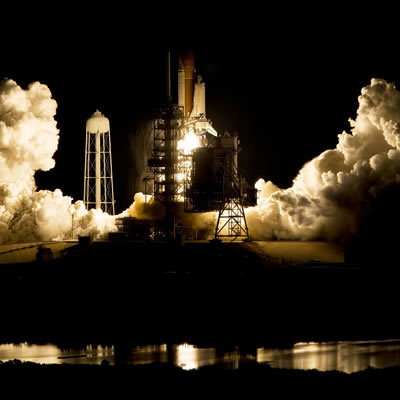
The U.S. is back in space after the shuttle Endeavour lifted off this morning. We children of the ’60s have become pretty comfortable with the notion that the U.S. has always been the leader in space, but the reality appears to be that we’re about to play second-fiddle to Europe, or so the Europeans tell us.
The space shuttle program, ends in 2010 and NASA has already told contractors that thousands of jobs will end around then.
The U.S. has invested about $100 billion in the International Space Station and in a few years will have no way for our own astronauts to get there other than asking for a ride from the Russians or Europeans.
Space officials have tried over the years to explain the benefits of the space program with dwindling amounts of success, especially as the economy sours. And even the “gee whiz” factor of staring back in time is losing its luster. Today, for example, the BBC carries details of a NASA effort to map the leftover light from the Big Bang.
While it has a high “cool” factor, the answer to the generational question of “how does this make any difference in the here and now?” is less clear.
(Note: I’m taking the day off today so posts will be more sporadic than usual.)
